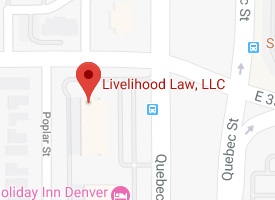Racial discrimination in the workplace means treating an employee or job applicant unfavorably because of the person’s skin color, race, personal characteristics associated with a race like hair texture or facial features, or association with someone of another race or color. Race discrimination can occur even if both are of the same race, but it is still illegal.

Today, many people like to think that racial discrimination in the workplace is no longer a problem. But the U.S. Equal Employment Opportunity Commission (EEOC) still received almost 24,000 race discrimination complaints in 2019.
In Colorado, employees have both federal and state protections from race discrimination in the workplace. You should understand your rights under federal and state law, including Title VII of the Civil Rights Act of 1964 and the Colorado Anti-Discrimination Act.
Title VII Protections
Title VII of the Civil Rights Act of 1964 prohibits race discrimination concerning any aspect of employment, including:
- Hiring;
- Firing;
- Pay and promotions;
- Layoffs;
- Training
- Job assignments;
- Fringe benefits; and
- Any other condition or term of employment.
See 42 U.S.C. § 2000e (1991).
Title VII also prohibits harassment because of a person’s race or color, including offensive remarks about a person’s race or color or displaying racially offensive symbols. Teasing doesn’t generally rise to the level of harassment under the law, but behavior that is so pervasive or frequent that it creates a hostile work environment does. Harassment that leads to adverse employment decisions is also illegal. The harasser can be a supervisor or co-worker, but it can also be someone who isn’t an employee, such as a customer or client.
Who Does Title VII Cover?
Title VII covers all public and private employers in the U.S. that have more than 15 employees. This coverage includes federal, state, and local governments, labor organizations, apprenticeship programs, and employment agencies. While the statute covers current and former employees, current and former job applicants, and trainees, Title VII doesn’t apply to independent contractors.
What is an Illegal Employment Policy?
In some cases, employment policies or rules that apply to everyone may violate Title VII if it harms employees of a certain race, isn’t related to the job, and isn’t necessary to business operations. An employer can also successfully defend disparate treatment if a characteristic is necessary for the job. For example, if a movie studio is filming a movie about George Washington, the studio may justify considering only people who appear to be white males for the job.
Colorado Anti-Discrimination Act
The Colorado Anti-Discrimination Act (CADA) prevents discrimination on a person’s sexual orientation, religion, disability, race, creed, color, sex, age, national origin, or ancestry. The CADA’s race discrimination prohibitions in the workplace also apply more broadly than Title VII. The CADA applies to all Colorado employers, not just those with 15 or more employees.
Filing a Racial Discrimination Claim
To file a complaint about racial discrimination, you may file with either the EEOC or the Colorado Civil Rights Division. The two agencies investigate and work collaboratively on discrimination claims. However, if you work for an employer with fewer than 15 employees, you may need to file your claim with the Colorado Civil Rights Division.
The EEOC and CCRD have differing statutory deadlines for filing claims. With the EEOC, you have 300 months to file a charge, while under the CADA, you have six months after the discriminatory act to file a charge. Either way, you must exhaust your remedies with these agencies before you can file a lawsuit for racial discrimination. It’s a good idea to consult an employment law attorney to ensure you file a complaint with the correct agency and within the statute of limitations.
Remedies Available for a Racial Discrimination Claim
Both Title VII and the CADA contain wide-ranging remedies for discrimination complaints to make the individual whole. Remedies may include:
- Back pay and interest;
- Front pay;
- Hiring or reinstatement;
- Attorney’s fees and costs; and
- Compensatory and punitive damages in cases of reckless or malicious acts of discrimination.
Federal law sets statutory caps for compensatory and punitive damages depending on the size of the employer:
- 15 to 100 employees: $50,000;
- 101 to 200 employees: $100,000;
- 201 to 500 employees: $200,000;
- More than 500 employees: $300,000.
If you’ve faced racial discrimination at work, you should consult an experienced employment law attorney as soon as possible to discuss your options and ensure that you meet the statutory deadlines to file a complaint.
Denver Discrimination Attorneys
Livelihood Law has extensive experience representing clients that have been discriminated against due to their race in the workplace. We are here to make sure that your rights are protected.
Navigating the ins and outs of a discrimination case can be extremely difficult to do without legal counsel. Livelihood law is here to help. Contact us today to find out what your options are and to protect your rights.


